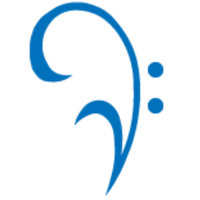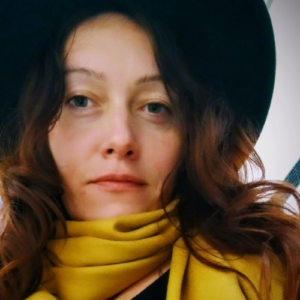Justified and important point. Let me try to answer.
Here is the question I ask the audience at almost every presentation on music therapy I make:
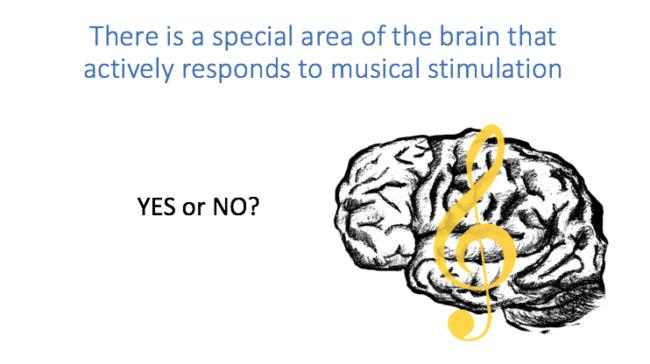
The answer, of course, is no. Even though the right arcuate fasciculus has been found to play important role in rhythm and melody learning, music is so much more! Music listening and, even more so, active music making engages multiple brain regions (we could go as far as to say “the entire brain”). Music activates vast network of regions located in both hemispheres of the brain and shares processing components with other functions, such as those involved in language, movement, reasoning and experiencing emotions (Thaut et al, 2015), (Koelsch, 2014), (Peretz, Zatorre, 2005), (Zatorre et al, 2007). Something like this:
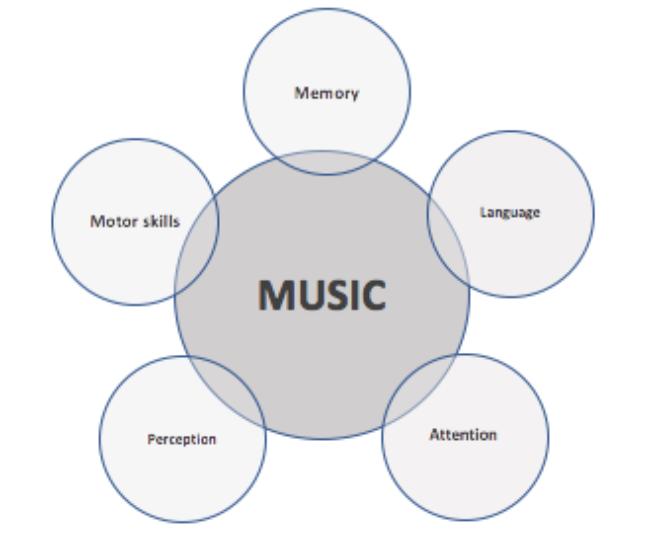
The shared neural pathways allow music activities to rewire and strengthen such vital functions such as gait, speech, memory, respiration and to be successfully used in neurorehabilitation after stroke and traumatic brain injury accidents (sounds like magical thinking? watch this episode featuring USA senator Gabby Giffords who recovered her speech through music therapy treatment). As a researcher and a neurologic music therapist working with persons affected by ALS, I find myself in an incongruent position: I long for the day when my services will no longer be needed! When the cure if finally found, I will have no patients to work with, the team and I will have no clinical goals to set and the nerve-wrecking analysis of the graphs in search for reversed trends will become history. I may then go on with a regular performing musician career, relieved and blissful.
But, in the absence of a cure, more rehabilitation options have to be considered for PALS. Research suggests that active rehabilitation may slow down disease progression and prolong lifespan for PALS.
Music therapy was found to be beneficial for psychological wellbeing and decreasing perception of physical symptoms of ALS. But we know music can yet do more! Why don’t we use music for rehabilitation of the most important functions such as speech, breathing and swallowing of persons affected ALS? Music therapy is effective here because:
-
close relationship exists between swallowing, vocalization and breathing, in terms of location and activation of the neurons (Larson, Yajima et al., 1994),
-
rhythmic entrainment primes motor neurons for action (Thaut, 2013),
-
musical rhythm serves as a pacemaker when entrainment occurs with subject’s breathing patterns (Kim, 2010),
Quite importantly, we now recognize the lack of motivation is one most prominent behavioural change in ALS. Luckily, music therapists know that patients motivation to work towards therapeutic goals increases with use of music. Whilst families affected by ALS may be reluctant to accept psychotherapy services, a music therapist is often able to establish a working relationship with patients and, through live music making and meaningful conversation, to increase motivation, enhance mood, decrease apathy and create a safe emotional space – a “container” for the overwhelming feelings and reactions, thus freeing up mental energy and focus necessary for treatment planning and compliance.
And is it not just about jumping the hoops of the regular exercise routine. A warm, authentic human connection is at work here as well. Music therapist is trained to adapt to increasing and changing disability of each patient as the disease progresses, whilst maintaining and developing trusting therapeutic relationship established early in the disease course.
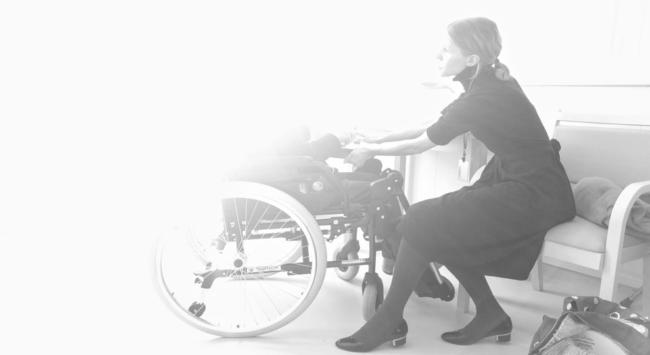
After observing the positive results in practice, it would simply be unethical not to proceed to scientifically researching the clinical protocol to support speech, breathing and swallowing for persons with early-stage ALS – and sharing the method with ALS teams around the world.
In May 2017 I left my job as a clinical training supervisor at Berklee College of Music and proceeded with the full time research at The Cambridge Institute for Music Therapy Research. The past year was intense, but the wonderful supportive team, pro bono expert consultants, sponsors and private donors have have done what could not be done: the experiment is completed and it is time to analyze the data!
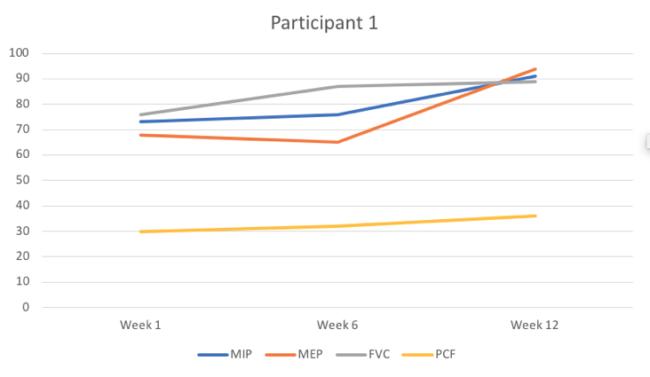
Here it is to the final leap of faith – one more year to go before publishing the results and sharing the refined music therapy protocol with the global ALS community.
Help us make it happen. Kindly consider a donation today.
